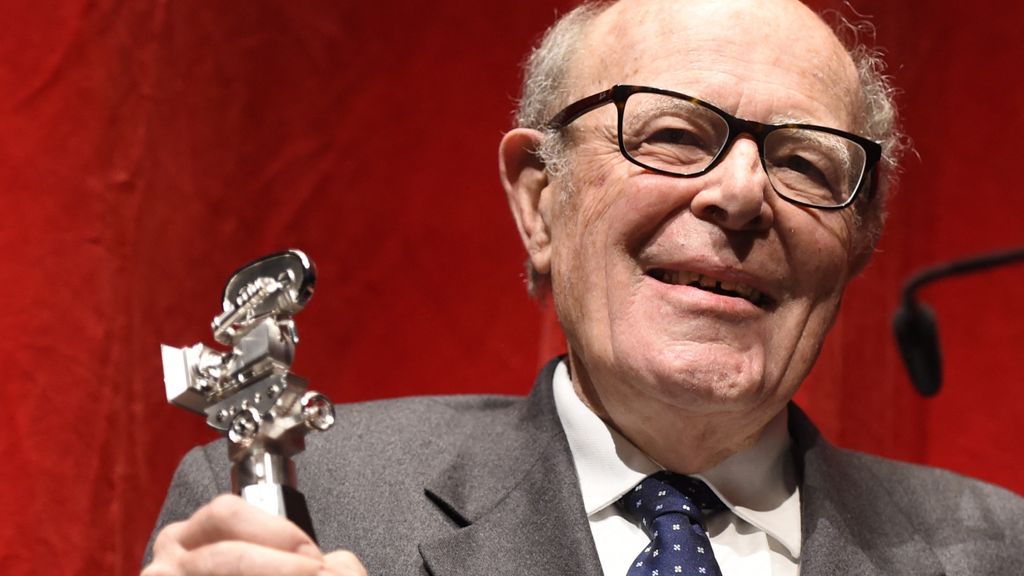
This article was last updated on May 26, 2025
Canada: ![]() Oye! Times readers Get FREE $30 to spend on Amazon, Walmart…
Oye! Times readers Get FREE $30 to spend on Amazon, Walmart…
USA: ![]() Oye! Times readers Get FREE $30 to spend on Amazon, Walmart…
Oye! Times readers Get FREE $30 to spend on Amazon, Walmart…
Oscar -winning documentary maker Marcel Ophüls (97) died
The French-American documentary maker Marcel Ophüls died at the age of 97. He won an Oscar with Hôtel Terminus (1988), about the German Gestapo chef and war criminal Klaus Barbie.
Ophüls was already known at the time by Le Chagrin et la Pitié (‘The grief and pity’), a documentary that struck like a bomb in 1969. Through interviews and archive material, the documentary revealed how the French Vichy government during the Second World War collaborated with a large part of the population with Nazi Germany.
The documentary is set in Clermont-Ferrand, a city close to Vichy in southern Frankijk from which the regime ruled most of the southern half of France. The rest of France was occupied by Germany, and Vichy-Frankrijk was also occupied in the middle of the war.
When Le Chagrin et la Pitié was first shown in Parisian cinemas, the film led to a shock and fierce indignation. The documentary dealt with the myth that General Charles de Gaulle maintained after his return with the Allies: that the vast majority of the French had openly or secretly supported his resistance movement. In reality, millions of French people supported the collaborating Vichy regime during the Second World War.
French television refused to broadcast Le Chagrin et la Pitié for years because of the sensitive and controversial content. A broadcaster later declared a government committee that the film “destroyed myths that the French population still needed”.
Marcel Ophüls was born on November 1, 1927 in Frankfurt, as the son of the famous Jewish filmmaker Max Ophüls and actress Hilde Wall. In 1933 the family fled to France for the Nazi regime. In the war it fled over the Pyrenees to Spain, from where it ended up in the US.
After the war, Marcel Ophüls started making feature films, including as an assistant to French filmmaker François Truffaut. In the sixties he shifted his attention to documentaries. Ophüls developed its own documentary style, with films that sometimes lasted longer than four hours.
His first breakthrough came in 1967 with a documentary about the Munich Agreement of 1938. In it, France, the VK and Italy Nazi Germany gave permission to annex the Czech region of Sudetenland. In the film, made for French television, Ophüls asked, among other things, whether negotiating with dictators is acceptable.
Documentary about Israeli occupation of the Palestinian territories
Between 1968 and 1971 he worked for German television. He made a film about the Pétain regime, the French hero from the First World War to collaborate as head of Vichy-France with Germany.
In 1989, Oscar won an Oscar for Best Documentary with Hôtel Terminus – Klaus Barbie, Sa Vie et Son Temps (‘His life and his time’), About the life of the infamous Nazi war criminal and chief of the Gestapo Klaus Barbie.
In his documentaries he denounced injustice, inhumanity and historical lies. He also made documentaries about the Nuremberg process and the parallels of the Nazi crimes with later war crimes and about the fall of the Berlin wall and the end of the GDR.
Ophüls spent his last years in southern France and worked until his death on a documentary about the Israeli occupation of the Palestinian territories. He died on Saturday. The cause of death was not announced.

Be the first to comment